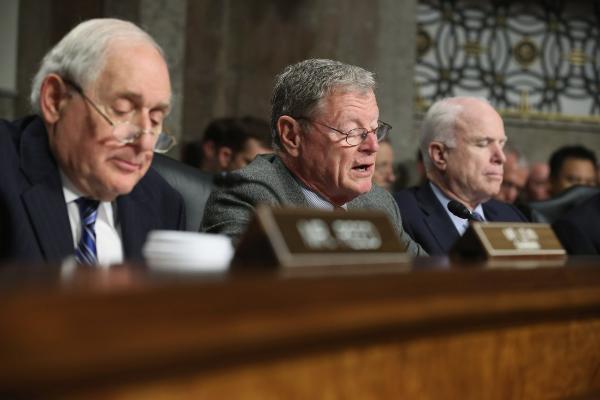It was the biggest story inside the Beltway. Since last Thursday’s hearing, the whole Washington media machine has been discussing and dissecting the extraordinary confrontation in the Senate Armed Service Committee regarding the potential confirmation of former Sen. Chuck Hagel as the new Secretary of Defense. Several Republican senators were extremely combative with the combat veteran who earned two Purple Hearts for his wounds in Vietnam. Hagel deserves another Purple Heart for the wounds his former “friends” and party members tried to inflict upon him. Hagel didn’t really defend his views — which were both caricatured and attacked by his adversaries — perhaps on White House advice not risk further debates before being confirmed.
But I think Hagel’s views and the important questions he has raised about current U.S. wars and military policy deserve defending and, indeed, should become the subjects of a national debate. So I wrote a piece about one of Hagel’s most hostile questioners who insisted the possible new Secretary answer the simple question of whether the surge in Iraq was “right” or “wrong.” I said it was wrong, as was the war in Iraq, as was the war in Vietnam, as are the views of John McCain on war throughout his entire political career; and how the nation has been wounded by McCain’s and others’ “theology of war.”
Chuck Hagel’s views could lead us to a necessary national debate if he becomes the new leader of the Pentagon. And it is that potential debate that Hagel’s critics are so afraid to have.
Read the Full Article

